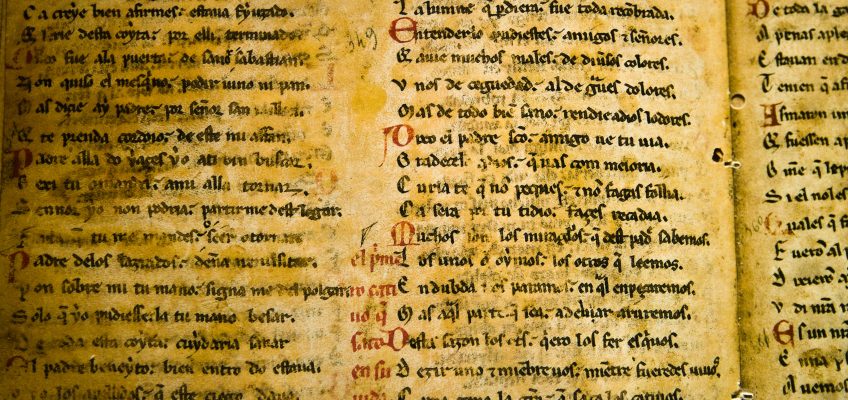Everyone who shows up at Mass next Sunday will be looking for a good story. They may not say it that way. They may say they are looking for some quiet time with God; or as sense of community; or a spiritual uplift; or forgiveness; or connection. But underneath all of those wants is a deep question about who I am and how I fit into the big picture of creation.
Humans have always had deep questions about identity. And the only way to discover who I am is to either tell or hear stories. I cannot be defined by a mathematical or chemical formula. Mere biology or physics won’t suffice. To grasp the mystery of what it means to be me requires a narrative.
What is guiding our story?
Religion is the narrative. All religions try to answer the deep question of identity by providing a big, cohesive narrative that tells me who I am in relation to the universe. As Christians, of course, we believe and teach that Jesus is the ultimate answer to all our questions about identity.
When people show up at Mass on Sunday, they are looking for a good story... Our job as liturgical ministers is to tell the story as best we can. Share on XWe hear the story of Jesus from the beginning (John 1). The story of Jesus is foreshadowed throughout the stories of the Old Testament. The story of Jesus is enfleshed at his incarnation. And it comes to a peak with his death/resurrection climax. Even if someone has never directly heard the story of Jesus, they are constantly being told the story by the daily beauty and divine power that surrounds them in nature (Romans 1:20).
So when people show up at Mass on Sunday, they are looking for a good story. Some of us know the story well and want to hear it again, in a deeper more nuanced way. Some, the catechumens for example, are just now learning the story and can’t wait to hear more of it. Some come hoping there is more to life than the small or false stories they’ve been telling themselves all this time.
Our job as liturgical ministers is to tell the story as best we can. At the very least, the liturgy — like a good story — must have a clear narrative structure. That means it must have:
- A beginning
- A climax
- An end
Beginning
If you are a musician, what can you do to make sure we begin well? Is the opening song always one everyone knows and sings well? If you are a presider, what is the first thing you do and the first thing you say that enables us to begin well? If you are a lector, psalmist, or Gospel reader, how do you walk to and stand at the ambo in such a way that everyone joins you and is ready to begin? Have you rehearsed your reading so many times that you know — almost by heart — the word God is speaking for us at this moment?
Climax
If you are a musician, does the communion song begin promptly, while the priest is receiving communion (see GIRM 86)? If you are a presider, does the assembly share in both the bread and wine that are consecrated at the Mass they are celebrating (and not hosts retrieved from the tabernacle; see GIRM 85)? If you are a communion minister, are you smiling as people approach you? Are you making eye contact? Does the assembly remain standing until all have received communion (see GIRM 43)? Is there either a sacred silence or a song of praise after everyone has shared in communion (see GIRM 88)?
End
Are announcements at the end of Mass truly necessary? Are they brief (see GIRM 90)? If you are a presider, do you bless the people in such a way that they feel filled with God’s Spirit? If you are a deacon, do you dismiss the assembly in such a way that they are empowered to go back to doing good works, praising and blessing God” (GIRM 90)?
When we do a good job of telling God’s story through the liturgy, we will all know who and whose we are. And that’s the kind of story that we can’t wait to tell and hear over and over again until the end of time.


One Response
The complete beginner’s guide to identifying the climax of the liturgy – Liturgy.life
[…] We said earlier that every time someone comes to Mass, they are looking for a good story. They are hoping to be carried away from whatever it is that burdens them. They are hoping to find a life that is free from worry, fear, and despair. […]